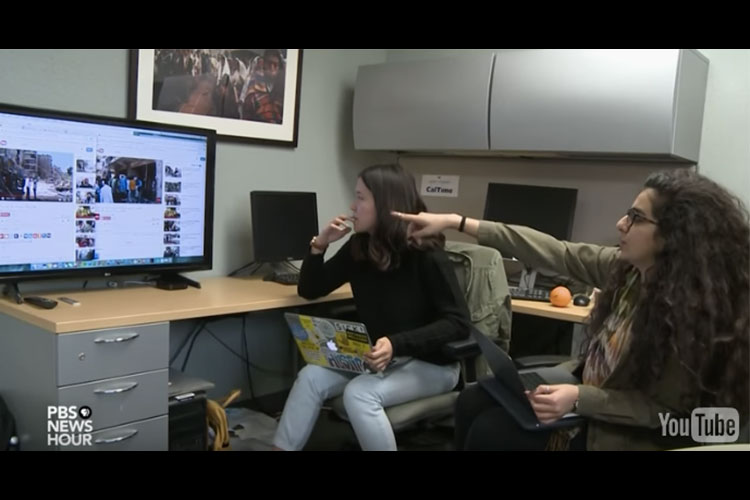Where cutting-edge research methods document the world’s atrocities
UC Berkeley's Human Rights Center runs the world’s first university-based open source investigations lab

February 21, 2017
In a new digital investigations lab launched by UC Berkeley’s Human Rights Center, students are learning cutting-edge open-source research methods for nailing down evidence of human rights abuses in areas where facts are hard to come by and on-the-ground observation is often risky — for example, war-ravaged Aleppo, Syria.
PBS NewsHour has just posted a new video about the Human Rights Investigations Lab, the world’s first university-based open source investigations lab. Human Rights Investigations Lab, It is a project of Berkeley’s Human Rights Center.
The video introduces the lab this way: “Humanitarian crises like those in Syria’s Aleppo sometimes make headlines. But how do we identify such atrocities when they are occurring thousands of miles away? A new program at UC Berkeley is training students to leverage social media, geolocation and other high-tech tools to document human rights abuses, and their findings have been brought to the U.N.”
Journalist Cat Wise interviews Alexa Koenig, director of the human rights center, as well as a student volunteer at the lab — a Coptic Christian whose family fled Egypt amid the turmoil there — and others involved in the project, including Amnesty International.
The hope is that the investigative work will “bring attention to human rights abuses through human rights reports and journalistic projects as well as gather evidence of genocide, crimes against humanity, and war crimes for future prosecutions,” according to the project’s administrators.